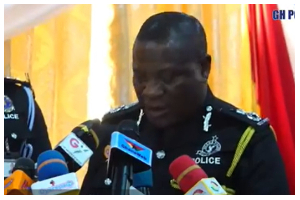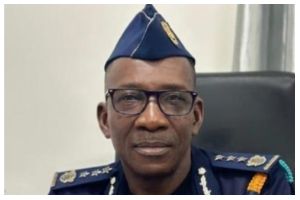In an article titled ‘The Ghanaian Media and Pathetic Journalistic practices: Its effects on national development, I sought to bring to the fore, some issues the Ghanaian media should prioritize. I indicated that:
‘Day in day out when one accesses the media, one inevitably, is fed with issues centred on politics: ‘ minister embezzles money;’ ‘BNI detains minister;’’ Speaker of parliament loots state property;’ etc., These are the sorts of stories that make the news twenty-four hours a day, seven day a week. All talk shows, editorials, columns, and comments are based mainly on these issues.
Meanwhile, an old man in Wa purchases a newspaper daily with the principal objective of finding out why his pension hasn’t been paid for months; a cocoa farmer at Mampong watches television regularly basically to find out when the government will construct the road that links his village to the city so that the cost of transporting his cocoa from the village to the city will reduce; an old woman at Ateibu listens to her wireless radio daily hoping to find out when the government will provide her village with electricity and pipe-borne water; so also, a child in the Northern region listens to radio daily hoping to find out when the government will build new classroom blocks for her school so that she stops learning under trees and canopies. All these individuals are not only denied (by the media) of the news or information they crave, but they are also burdened with political news and arguments that are irrelevant to them.’
However, in an article titled ‘Pathetic Journalism? I beg your pardon!, which appeared on the websites of Joy FM, Modern Ghana, and Ghanaweb, Benjamin Tawiah, the author virtually succeeded in distorting and misconstruing some of the issues I had raised in my article. I therefore seek to correct some of the distortions, inaccuracies and misinterpretations that underlay his analysis.
Benjamin wrote: ‘‘ By the time Samuel Obour, a student of Communications Studies at the Ghana Institute of Journalism, ended his discussion on “ Pathetic Journalism in Ghana’’, a feature which appeared on the websites of Joy Fm, Modern Ghana, and Ghanaweb , he had succeeded in turning what is merely pathetic in to a crisis. Obour had joined the old cliché-ridden debate on how our journalism is not meeting the accepted standards, yet he failed to say what those standards should be. In any case, is Ghanaian journalism pathetic?’’
I am surprised that Benjamin, an obviously experienced and intelligent ‘journalist’, considering the very articulate manner in which his views were delineated, failed to contextualize ‘pathetic’ in relation to the priority of the Ghanaian media I talked about; as a result, he ended up confused and oblivious of the message I sought to pass across. I wasn’t interested in Ghanaian Journalism not meeting the accepted standards; neither did I infer that Ghanaian journalism is pathetic. I built my points based on the premise that ‘the Ghanaian media’s practice of always prioritizing political stories or issues at the expense of other issues that could lead to the accelerated development of Ghana. Essentially, it is sad that the Ghanaian media has invariably singled out political stories for discussions and analyses while other very important issues such as how to prevent floods from destroying lives and property, how to reduce unemployment, how to provide basic amenities for our fellow Ghanaians in deprived regions. Isn’t it disheartening to note that though pupils in some schools in the Northern region read and write under trees in absolute susceptibility to rain and sunshine, due to the problem of inadequate classrooms, our journalists do nothing to put their plights in the spotlight; but they are always discussing and debating political issues with enthusiasm? I’m sure readers will agree with me that there is a stark difference between saying ‘Ghanaian journalism is pathetic’ and saying ‘some practices of the Ghanaian media are pathetic.’ While the former is an extremely broad topic that cannot be discussed coherently based on a single premise in a two-page article, the latter can; and that is exactly what I did.
Readers will recall that I stated six basic roles of the media in the society; and I went on to add that: ‘one of the most important (if not the most important) of the roles of the media is ‘opening up channels of communications that will enable public access to government.’ This role obliges the media to open up avenues through which those who make up the society can channel their needs and grievances to government; however the Ghanaian media doesn’t seem to be performing this role. Everyday people cry for pipe-borne water, electricity, good roads, schools, hospitals, and many more; yet the media does nothing to put these issues in the spotlight.’ This was the basis of my argument; and it is surprising that Benjamin refuses to see it that way. Benjamin went on to say:
‘’ Kwansema and Obour know a thing about gutter journalism but they fail to tell us what constitutes good journalism. Would they for instance find it guttery that British newspapers decided to make front page news out of a pornography- addicted husband of a government minister, when innocent British forces were dying in Afghanistan? Obour is likely to ask: if a minister’s husband pleasures away in front of a computer screen learning a few tricks from porn stars to please his wife in the comfort of their bedroom, how does that affect homeless people walking in the streets of Britain.’’
I honestly think Ben’s points were not only misplaced, but they were also contradictory to some of the issues I had raised. Nobody is suggesting that newspaper headlines should always be about ‘road constructions or only be about developmental issues. We are talking about priority here; and that is why I kept on using the word ‘prioritize’ which according to the Oxford Advanced Learner’s dictionary means’ to put tasks, problems etc. in order of importance, so that you can deal with the most important first.’
I indicated in my article that: ‘journalists especially those in the print media want to make quick sales; therefore they go for the explosive political stories that attract readers. There is absolutely nothing wrong in providing the Ghanaian with information regarding good governance, government accountability, or corruption in the public service; however, that information shouldn’t be prioritized at the expense of other pertinent issues that could lead to the acceleration of Ghana’s development.’
In other words if the Ghanaian media can dedicate weeks or even months discussing with enthusiasm and concern, political stories such as ‘how a minister embezzled state money’, ‘how the BNI detained a minister’,’ how a demonstration occurred’, and many more, the same media should also be able to dedicate some time and space for discussions of more pertinent developmental issues like ‘how to alleviate poverty in deprived regions’, ‘how to reduce unemployment, armed robbery’, and many more. With regards to British newspapers making front page news out of a pornography addicted husband of a government minister, Benjamin should be in a better position to know that Britain is a developed nation where people aren’t dying of malaria, women aren’t dying in child birth, everyone has access to water and electricity, there are no diseases, no poverty, no road accidents. So there is virtually nothing to talk about. British newspapers may even decide to make front-page news out of someone’s bald head! How many times haven’t we seen documentaries of Africans suffering and dying of diseases on foreign channels such as BBC and CNN? The reality is that their journalists don’t get those sorts of stories in the developed countries so they come to Africa where there are lots and lots of ‘evil’ and ‘pathetic’ things to talk about. Finally, Benjamin, quite inimically, wrote: ‘our journalism becomes pathetic when those who think a head line must always be about road construction descend into the gutter to call ours gutter journalism.’ Then he goes on: ‘our gutter journalism has produced Mr. Anas Aremeyaw Anas, probably the first black African to merit a space in the speech of an American president. Komla Dumor is the toast of the BBC’s flagship major news bulletin.’
Having dealt with the ‘road construction’ issue already, I crave to know if it is logical to conclude that Ghana’s journalism is perfect just because two (Anas and Komla) of the thousand of thousands of journalists we have in Ghana have hit the ‘jackpot’ of international recognition?
In conclusion, I should state that I have gone round some parts of the country and; I can affirm unambiguously that there are still lots of challenges facing the country. In spite of all our natural resources, there are still Ghanaians who, even though they work hard, still can’t afford three square meals a day; there are those who die due to lack of proper heath care; there are those who walk twenty kilometres to and fro school every day, we have those who have invested millions of Cedis in education but can’t get jobs after school; there are those who lack basic social amenities. If even healthy and whole Ghanaians are struggling futilely to make ends meet, how much more the disabled?
Suffice it to say that, these problems reinforce my belief that instead of always talking about politicians who have the luxury of receiving housing allowances, car loans, and huge sums of money in end of service benefits, the Ghanaian media can and should do more to bring the plights of deprived Ghanaians and communities who are perpetually being denied a share of the national cake, to the fore. It is only when this is done that the chief tax collector-the government, would be obliged to address some of their most pressing problems.
God bless our homeland Ghana! Samuel K. Obour Samuelkwason@yahoo.com The Author is studying communication Studies at the Ghana Institute of Journalism.
Opinions of Monday, 10 August 2009
Columnist: Obour, Samuel K.
RE: Pathetic Journalism? I Beg Your Pardon!
Entertainment













